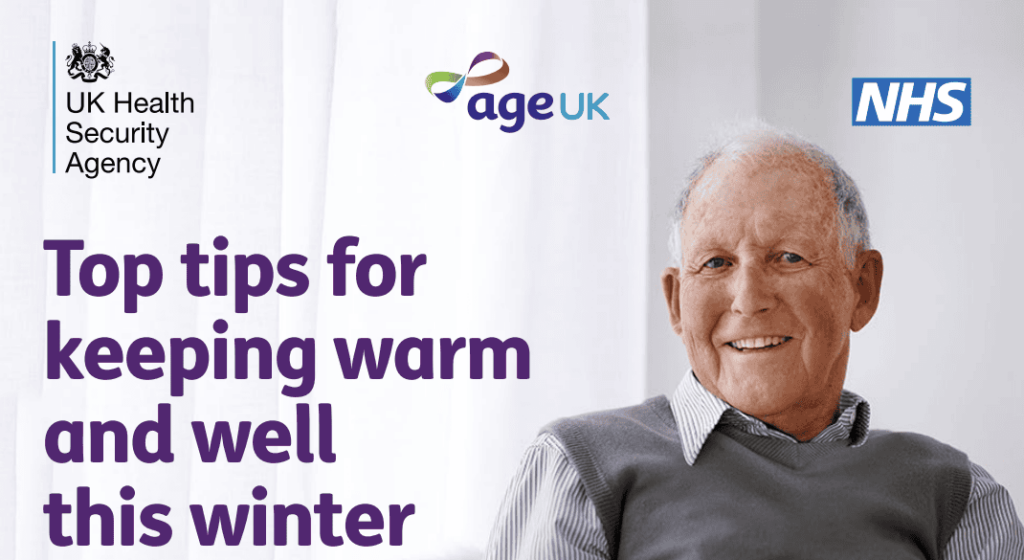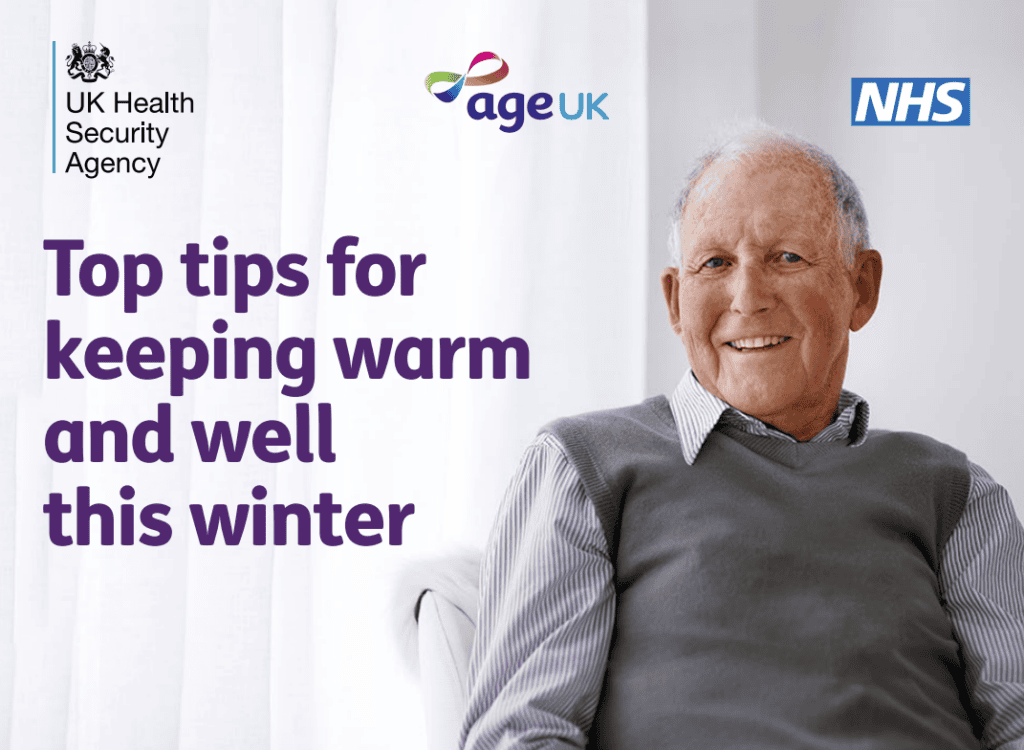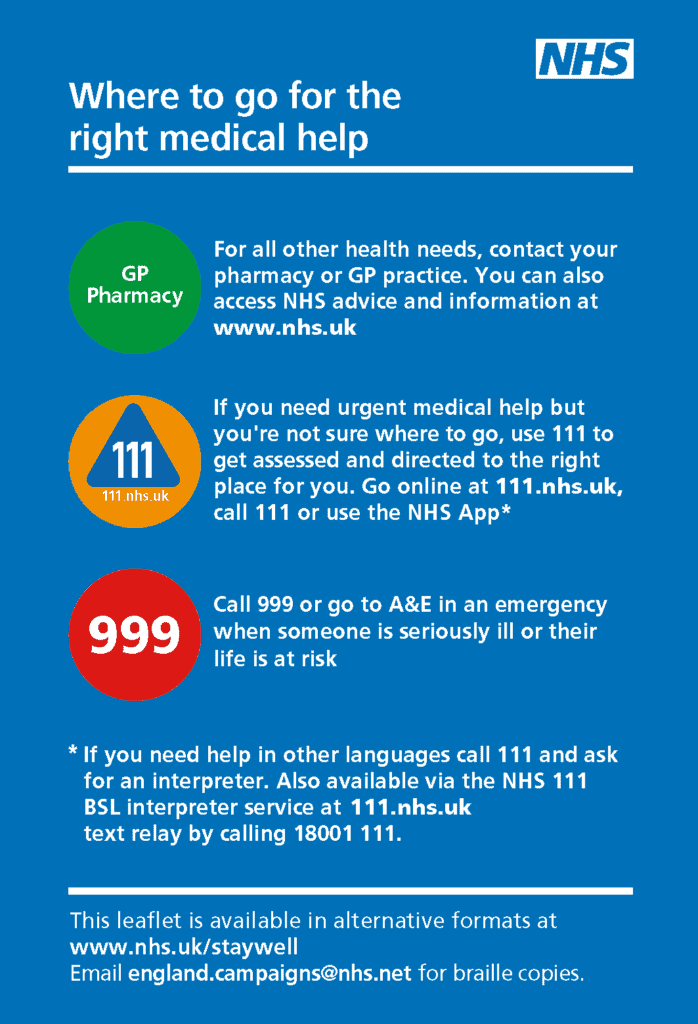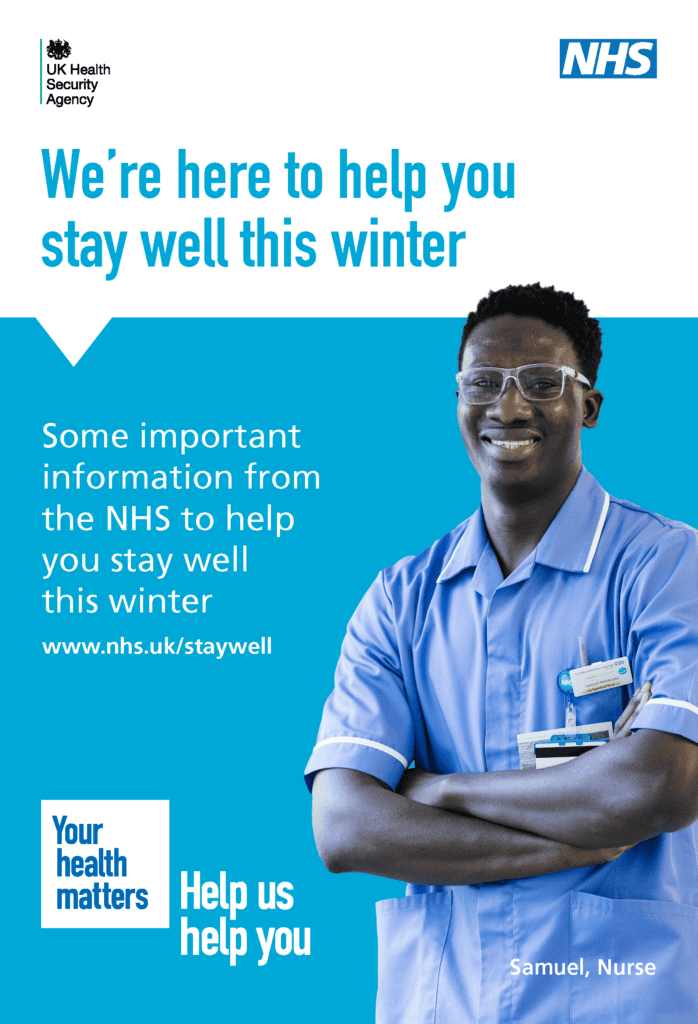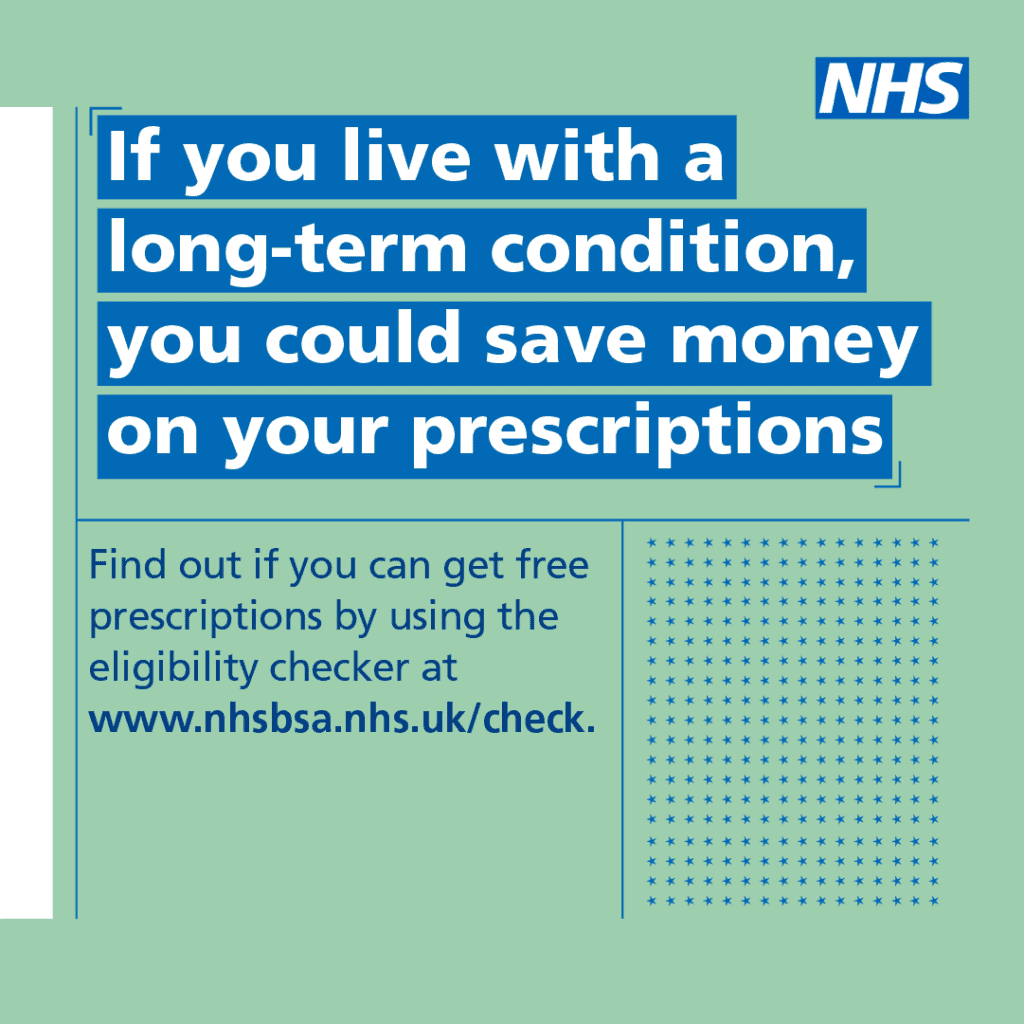Some people are more vulnerable to or ‘at increased risk’ from the effects of cold weather such as respiratory illnesses like colds, flu or Covid.
This includes those aged 65 and older, those on a low income, those with a long-term health condition, those with a disability and those with a mental health condition.
Use this checklist to help get access to key support and keep well over winter. This might be for you, a family member, a friend or a neighbour.
1. Cold snap preparation
Do you know what to do if there’s a cold snap on the way?
- Watch and listen for the Met Office cold weather alerts on TV/radio/internet
- You can sign up for e-mail alerts from the Met Office
- Follow the advice in the ‘Top Tips for Keeping Warm and Well This Winter’ leaflet
2. Flu, Covid and respiratory syncytial virus (RSV) vaccinations
Have you had your flu and Covid vaccinations?
Flu and Covid spread more easily during winter as we spend more time indoors. The flu and Covid vaccines are recommended for people at higher risk of getting seriously ill from flu or Covid and for those most likely to pass these on to other people at risk.
Vaccines are our best protection against flu, RSV and Covid.
- You can get the free NHS flu vaccine if you are aged 65 or over, have certain long-term health conditions, are pregnant, live in a care home, are the main carer for an older or disabled person, or receive a carer’s allowance, or live with someone who has a weakened immune system.
- You may be eligible for a seasonal Covid vaccine if you are: aged 65 years old or over, living in a care home for older people, aged 64 years and under and at increased risk, a carer or living with someone with a weakened immune system, or a frontline health or social care worker.
To find out more, contact your GP surgery or visit the NHS’ Seasonal Vaccinations and Winter Health website
You will need to book your Covid vaccination before 20 December 2024.
Learn more about RSV and vaccinations to protect you and your loved ones on the NHS Birmingham and Solihull webpage.
Do you know how to get advice if you feel unwell?
- If you’re 65 or over, or in another at-risk group (such as having a long-term health condition or a disability) it’s important to get medical help as soon as you feel unwell.
You can get help and advice from:
- A pharmacy – pharmacists can give treatment advice for a range of minor illnesses and can tell you if you need to see a doctor.
- Your GP – you may be able to speak to a GP online or over the phone or go in for an appointment if they think you need to.
- NHS 111 – go to 111.nhs.uk or call 111 if you have an urgent medical problem and you are not sure what to do.
The sooner you get advice, the sooner you’re likely to get better.
In an emergency, go to A&E immediately or call 999.
3. Medications and supplements
Do you need a review of your medications?
- If you are regularly taking prescription medications or taking medications for a long-term condition you should have these reviewed at least every year.
- You may also need a medication review if you: are taking hospital prescribed medications, have come out of hospital recently, or having issues with your medications such as difficulties taking them or side effects.
- You can also ask your GP or pharmacist for a review if you have any other concerns about your medication.
- Ask for your repeat medications a week before they are due to ensure you do not run out.
Do you struggle to collect your medications?
- See if someone you trust (like a family member, friend or neighbour) could collect them for you. Some pharmacies will deliver your prescription medicines to you, but you may need to pay for this service. Contact your local pharmacy to see what services they offer. You can also find information on the NHS’ Find a Pharmacy website.
Do you struggle to pay for your prescriptions?
- You can get free NHS prescriptions if you are aged 60 and over. Other groups are also eligible. If you do need to pay, you could save money with a Prescription Prepayment Certificate (PPC). There is also the NHS Low Income Scheme (LIS). Check with your pharmacist for more details or visit the NHS’ website.
- You can also look at an NHS Prescription Prepayment Certificate or the NHS Low Income Scheme.
Are you taking a vitamin D supplement?
- Vitamin D is essential for good health and is needed to keep bones, teeth and muscles healthy. During the autumn and winter, you need to get vitamin D from your diet because the sun is not strong enough for the body to make it. Taking a supplement helps to keep your vitamin D level topped up during the colder months. You can buy a vitamin D supplements from supermarkets and pharmacists. Speak to your local pharmacist or GP if you have any concerns.
4. Cold or damp home
Are you having issues keeping your home warm and dry?
Book a free Home Energy Check with Age UK Birmingham on 0121 437 0033 or e-mail energycheck@ageukbirmingham.org.uk. The service offers: practice advice about keeping warm, information about winter benefits, advice about smarter use of energy, installation of energy saving devices (such as draught excluders and radiator panels) and referrals to other useful services if needed. Find out more on the Age UK website.
Warm Welcome Spaces are available in Birmingham and Solihull. These offer a place for you to be warm and socialise with others and may offer other services such as free activities, information, support and guidance and a hot drink or warm meal. Visit www.warmwelcome.uk/find-a-space for more details.
5. Help with fuel bills and money
Do you find it difficult to afford or to pay your fuel bills?
- Contact Citizens Advice consumer helpline 0808 223 1133 Monday to Friday 9am to 5pm and ask to talk to an energy adviser. Calls from mobiles and landlines are free.
- Contact Birmingham Settlement’s free money advice service on 0121 250 0765 or money.advice@bsettlement.org.uk. The service offers advice around debt, welfare benefits and managing your money.
6. Falls
Have you had any falls in the last year?
- Tell a healthcare professional, such as your GP, if you have had a fall or started to feel unsteady on your feet even if you feel fine otherwise. Your GP can check your balance and walking to see if this can be improved. They may refer you to a falls prevention service.
- You can find more information on falls on the NHS website.
Would you benefit from adaptations in your home like grab rails?
- Contact the Occupational Therapy Service for Adults on 0121 303 1234 (press option one) to discuss having an assessment. The team can provide advice and equipment to improve how you manage at home such as using the stairs and preparing drinks and meals. They can also advise if you are eligible for adaptations to be made to your home and signpost you to other services.
7. Additional help at home
Would you benefit from additional help at home?
- You can contact Birmingham adult social care on 0121 303 1234 to request an assessment to help understand what support you might need at home.
- In Solihull, you can contact adult social care on 0121 704 8007 (Monday to Friday 9am to 5pm apart from Wednesdays when the line is open 10am onwards).
8. Eating well
Do you find it difficult to have regular daily hot meals and hot drinks?
- There are a number of foodbanks available across Birmingham and Solihull. Contact Birmingham City Council customer service centre on 0121 303 1116 (Monday to Friday 9am to 7pm and Saturday 10am to 1pm) to request a foodbank voucher.
- Older individuals experiencing any issues accessing food can contact Age UK Solihull on 0121 704 7840 or info@ageuksolihull.org.uk.
- Find information on your nearest Trussell Trust Foodbank.
9. Help for carers
Are you helping to look after a friend or family member who otherwise couldn’t manage without your help due to illness, disability, mental health issue or a substance misuse problem?
- Contact the Birmingham Carers Hub on 0333 006 9711 to find out what support is available locally for carers and complete a carer’s assessment.
- In Solihull, contact Carers Trust Solihull on 0121 788 1143.
- If the person you care for is under the care of a mental health service ask the team that sees them for a carer’s assessment.
10. Feeling connected
Do you feel connected to your local community?
- Reengage supports older individuals who are lonely, isolated or in need of companionship. You can call 0800 716 543 to find out about supports available locally or visit their website.
- The Silver Line Helpline, run by Age UK, is a free, confidential telephone service for older people providing friendship, conversation and support. The helpline is available on 0800 470 8090 24 hours a day, seven days a week.
Are you struggling with your mental health?
If you are known to a mental health service get in touch with them ahead of your next scheduled appointment if you are finding it harder to cope with feeling anxious or low in mood.
If you need urgent mental health help, you can ring NHS 111, and press option 2 for advice and support 24 hours a day, seven days a week. You can use this line whether you are known to mental health services or not.
Check out the NHS Every Mind Matters website which has tips and advice for dealing with stress, anxiety, sleep and low mood: https://www.nhs.uk/every-mind-matters/


